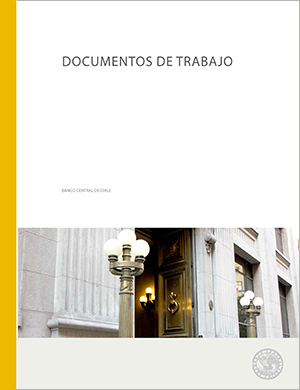Documento de Trabajo N° 1015: Fiscal Consolidations in Commodity-Exporting Countries: A DSGE Perspective
Investigación económica
Documento de Trabajo N° 1015: Fiscal Consolidations in Commodity-Exporting Countries: A DSGE Perspective
Autor: Manuel González-Astudillo , Juan Guerra-Salas , Avi Lipton
Descripción
En este artículo desarrollamos un modelo DSGE de economía pequeña y abierta para evaluar los efectos macroeconómicos de consolidaciones fiscales en economías exportadoras de materias primas. El bloque fiscal incluye inversión pública productiva, consumo de gobierno que aumenta la utilidad de los hogares, transferencias a hogares con restricciones financieras, e impuestos al consumo y a los ingresos laborales y de capital. Una prima por riesgo soberano, que depende del nivel de deuda externa, es crucial para la transmisión de la política fiscal. Esta prima afecta el consumo e inversión de los hogares que no enfrentan restricciones financieras, y al resto de la economía a través de efectos de equilibrio general. El modelo se estima con métodos Bayesianos y datos del Ecuador, un país con alta dependencia de exportaciones de petróleo. Estudiamos los efectos macroeconómicos de distintos impuestos y componentes del gasto público, y consideramos un programa de consolidación completo siguiendo el acuerdo entre el Ecuador y el FMI del periodo 2020-2025. El programa reduce la prima soberana, lo que promueve la inversión. El consumo de los hogares sin restricciones financieras cae por el mayor impuesto al ingreso laboral, pero el consumo de los hogares restringidos aumenta debido a la expansión de las transferencias de gobierno. En términos agregados, el PIB cae alrededor de 1% por debajo de su tendencia.
Documento de Trabajo N° 1015: Fiscal Consolidations in Commodity-Exporting Countries: A DSGE Perspective
Recuadros y gráficos

